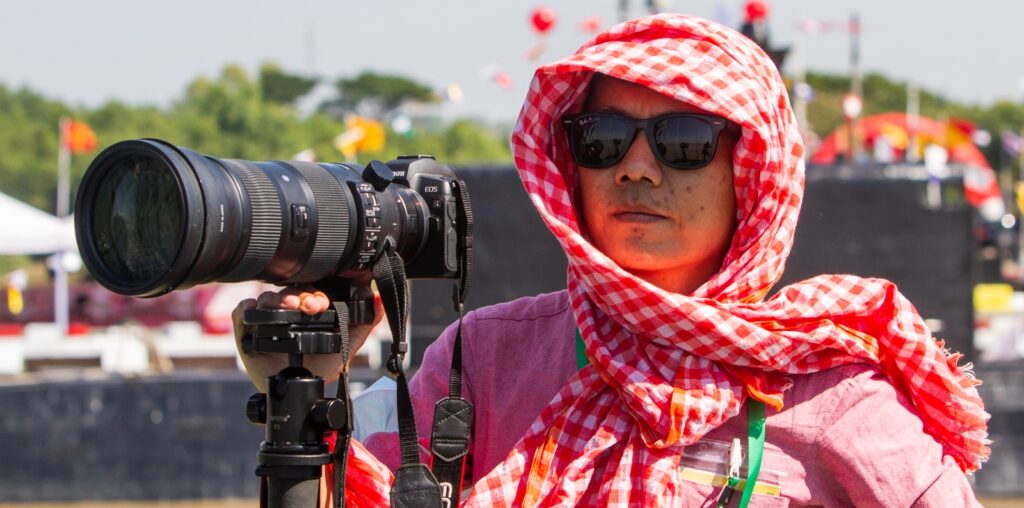OBITUARY
Frontier reporter Naw Betty Han remembers a friend and fellow exiled Myanmar journalist who died on October 5 in the northern Thai city of Chiang Mai.
Like other Myanmar journalists in exile, I find it hard to accept that Ko Htet Wai is gone. He was a short, slender, youthful-looking man whom we would jokingly call big brother. But like a good big brother, he was our rock in tricky times. If he had negative feelings, he kept them to himself and only talked about fun things with his friends.
His death, therefore, feels like losing a relative. He was found gravely injured at the side of a road, in circumstances that remain unconfirmed, and died in a hospital in Chiang Mai the same morning, aged only 33.
Htet Wai grew up in rural Hinthada Township in Ayeyarwady Region but became a photojournalist in Yangon. I met him there in 2018, shortly after I became a reporter for the Myanmar Times. He was working for a rival outlet, The Irrawaddy, but I’d regularly see him photographing protests and daily life in the city. Despite his small stature, he would carry two big cameras and a large bag, prompting me to half-jokingly ask if I could share the load. “No problem, sister,” he’d respond each time, waving away my offer.
In fact, Htet Wai was an agile and energetic man, and would ride a fixed-gear bicycle across Yangon. One evening when I was sitting with other reporters in downtown Maha Bandoola Park after covering a protest, he came along and showed off by riding his bike without touching the handlebars. Sometimes, he took his stunt-riding too far. When he joined me and some fellow journalists one day at a teashop, he had cuts and bruises all over one side of his face and his left arm. But he still wore his usual smile.
Despite his carefree nature, Htet Wai was also meticulous at his job and produced work that powerfully captured the lives of Yangon’s working class. Some of his photo essays were hits with the public, including one profiling a man who sold sparrows on the streets of the city, and another about a volunteer firefighter, both published in 2020.
In the early days following the military coup in February 2021, we were both busy covering the street protests but rarely saw each other amid the immense crowds. I learned, however, that he had broken his back while photographing a demonstration in Shwegondaing junction. He had climbed a wall to get a good vantage point but lost his balance and fell.
He needed to rest for many months after being discharged from hospital and had to leave The Irrawaddy. Like other journalists, he stayed in a safehouse in the city, sharing the space with my boyfriend and several others in the industry. When I came to visit, Htet Wai was sad at being unable to go outside and document the continuing protests.
However, from the same building, he managed to record a shocking instance of police brutality in the street below. His photograph of an officer assaulting a pregnant woman went viral on social media. Later, he was able to venture out and follow the protests, but used his phone to take photos because it was still too painful to hold a big camera.
I left Myanmar for Thailand in October 2021 because it was becoming increasingly unsafe to report in the country. Htet Wai remained in Yangon but two months later, he phoned me to say he’d be joining me in Chiang Mai. This decision was prompted by an incident of a kind that had become disturbingly common in Yangon. He and a taxi driver had been beaten by soldiers and police who arbitrarily stopped their vehicle.
But although he was now in a safer place, Htet Wai was depressed after arriving in Thailand. He struggled to find work and was frustrated that he was no longer able to record the situation in Myanmar first-hand. However, he largely hid these feelings and was the life of the party when he got together with his friends. Unable to do news photography, he instead took photos at his friends’ weddings and other special occasions, doing it for free as a gesture of friendship and to keep practicing his craft.
He eventually got a job writing English language news for Thanlwin Khet and moved to the town of Mae Sot on the Myanmar border for several months, but this arrangement didn’t work out and he returned to Chiang Mai. His back pain meant he couldn’t resume his old work as a photojournalist, because he couldn’t hold a camera for long periods, so he looked for other writing jobs.
About four months ago, Htet Wai came to visit the house I share with my boyfriend in Chiang Mai with an especially large smile. He’d just got a job as a reporter for The Irrawaddy’s English edition. We were delighted for him and cooked a meal of pork ribs and potato curry to celebrate. When I think of him now, I picture him during that visit, sitting in our yard while we cooked and finishing a news story on his laptop, while intermittently playing with my cats as he loved to do.
Seeing photos of him during his funeral in the city on October 10, my friends and I still couldn’t believe he had died. Htet Wai, so full of joy, had gone from the world so suddenly. We prepared flowers for the event and raised money to support his family back in Myanmar, and we remembered the happy times we had spent with him. We cried and knew we would never forget Ko Htet Wai.
Goodbye, my friend.

